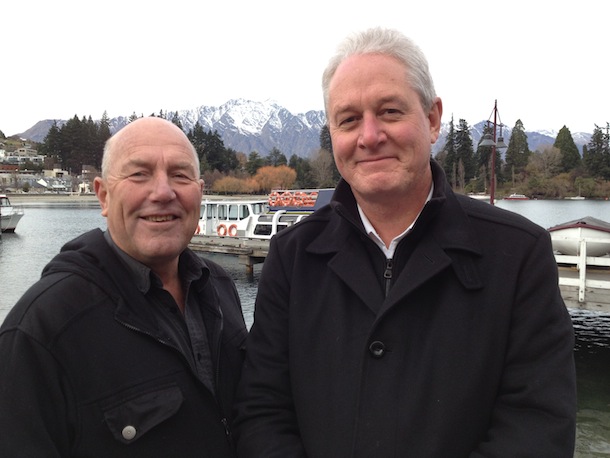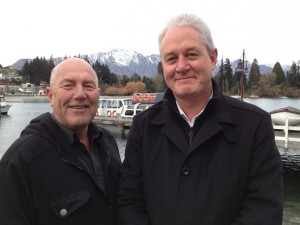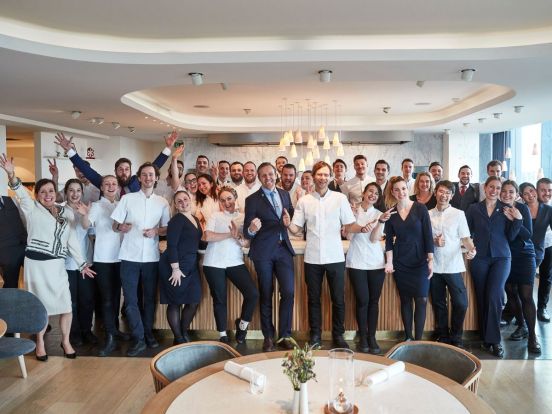Restaurant and hospitality industry leaders in Queenstown have been working closely with Government departments to find ways to fast-track visa applications for overseas workers as the national staff shortage crisis continues to worsen.
Immigration NZ and Work and Income staff regularly meet representatives from Queenstown’s hotels and restaurants, and other tourism businesses in a proactive attempt to try and circumvent this growing national problem.
Former Restaurant Association of New Zealand vice-president Tony Robertson, a long-time Queenstown restaurateur, has been dealing with Immigration NZ for 27 years over staffing. “This latest group we’ve set up has been going for about five years,” Robertson says. “As far as we know it’s a pilot group [for New Zealand] and has sort of been working.
“The Queenstown Immigration branch is managing to process a whole lot more applications because there’s a layer of trust there. We now know what procedures to follow so applications can be processed quickly and there has been a big improvement in communication which helps.”
Some local operators, particularly those running hotel kitchens, also work with Work and Income to take on the more difficult cases that they have on their books. However as tourism grows the problem gets worse. Robertson knows of another four restaurants in the pipeline in Queenstown alone: “That’s another 50 or 60 staff needed in restaurant kitchens,” he says.
Operators are struggling to find a way around the problem. “We can’t blame Immigration NZ or Work and Income. We know they’re charged by the Government with finding jobs for Kiwis and there would be nothing better than to have Kiwis working for us,” says Robertson.
“However, last time I advertised for a chef I got one Kiwi from the Waikato with a limited CV, who would only fly to Queenstown for a job not an interview, four applications from overseas and quite a few kids just passing through town. Only four out of 17 of my staff is Kiwi. The situation isn’t much better in Nelson where my restaurant Styx only has a handful of Kiwis including some local polytechnic trainees on work experience. It’s a national problem.”
Regulations mean employers can’t even advise their overseas staff on their visa applications. Only accredited Immigration NZ advisors can do that, so Robertson says all he can do is ensure his staff “tick all the boxes”. He’s urging operators nationally to get along to meetings with Immigration NZ staff, to get to know the local officers and get familiar with the regulations. “Unless we work together we’re not going to get through this.”
Southern Lakes Restaurant Association president Grant Hattaway says it’s vital that the industry improves the ‘brand image’ of the hospitality sector so that the old ‘fill-in job until something else comes around’ image is forever banished. “Tourism is our number one foreign exchange earner. It’s the fastest growing industry in the country, yet we struggle to get Kiwis to work for us,” says Hattaway.
The average ownership of a restaurant in New Zealand is only 20 months and Hattaway’s really concerned about the lack of investment in staffing. “Visitors come and want to know about New Zealand. If staff are here for three months on a working visa, have they got skin in the game, and do they care?” he asks.
“Hospitality is our chance to showcase our premium food and beverage products to the world. It’s really important, with the growth, that we put the investment in as a country at base level. The market’s growing quicker than newly-trained staff are coming through. On average less than 15 per cent of Queenstown’s hospitality workforce are Kiwis. Four out of 52 staff at one Queenstown restaurant I know of are Kiwis – therein lies the challenge.”
There has been a lot of good lobbying at Government level by the Restaurant Association of NZ and Hospitality NZ, but unfortunately cafe and restaurant managers remain off the Government’s skills shortage list. That just creates more bureaucratic hoops for employers, who can spend approximately $300 per person registering jobs with Work and Income and advertising for Kiwis. “These are really skilful positions,” Hattaway says. “They’re handling a restaurant of 100 people – that’s not for a person on a Work and Income training programme.”









